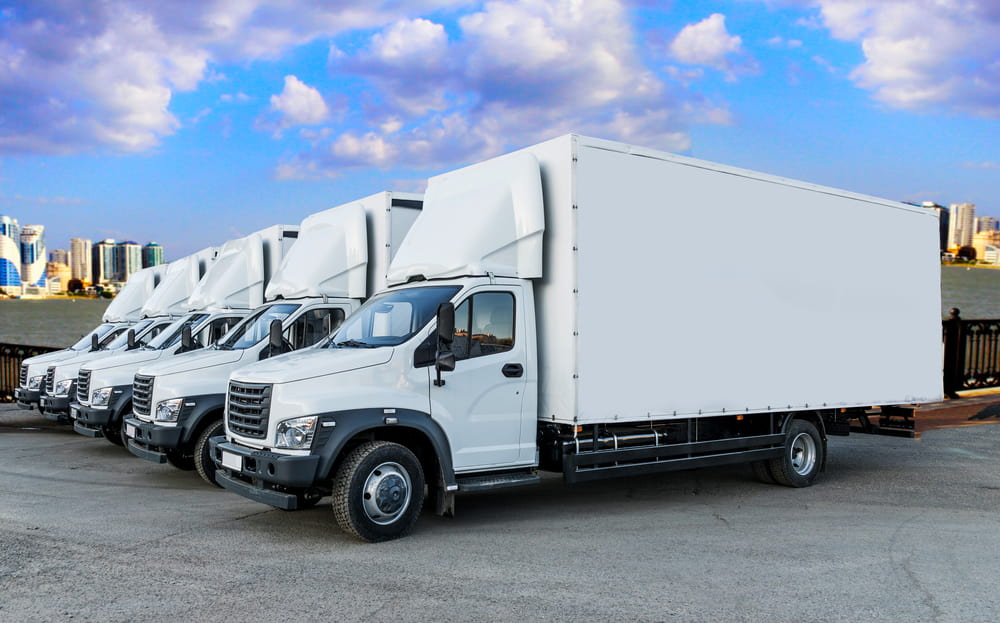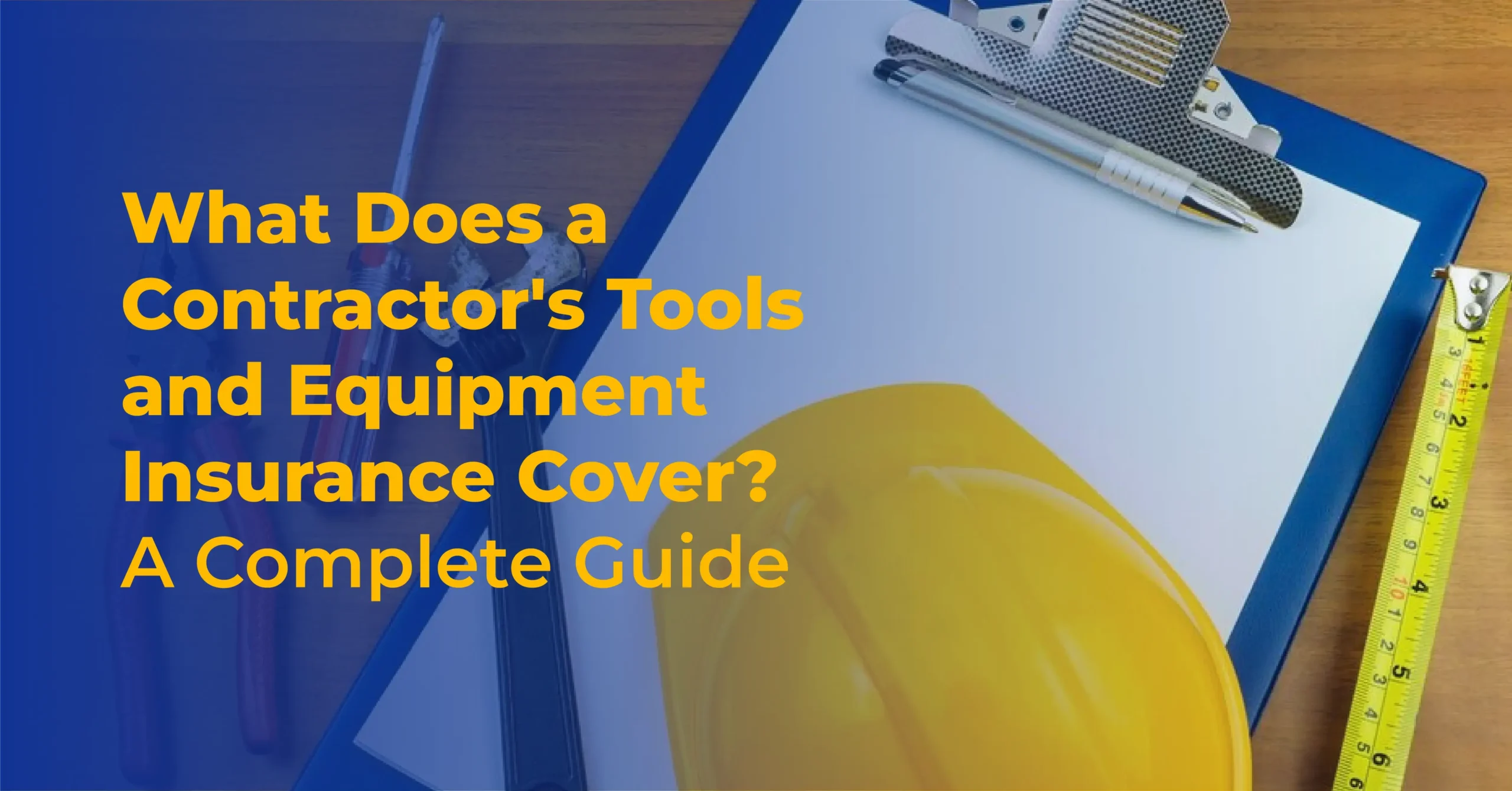
Commercial box truck insurance, also called trailer interchange insurance, is a type of coverage made for trucking businesses and drivers who regularly haul trailers owned by others. It’s like a safety net for using someone else’s trailer to transport goods. Box truck drivers face many risks linked with short-haul trucking in the commercial sector. This insurance steps in to help if something goes wrong while you’re responsible for someone else’s trailer. It covers things like damage to the trailer or if it gets lost while in your care. It’s like a shield that protects you and your box truck business while you’re using trailers on or off the road, even if they aren’t yours. It’s essential for trucking companies and drivers who often work with trailers owned by other businesses to have this coverage. It helps avoid big financial headaches if something unexpected happens during transport.
What Businesses Need Commercial Box Truck Insurance?
Here is a list of box truck businesses that need commercial box truck insurance.
Delivery Services
Stores that deliver stuff to your house, like online shops, grocery stores, or restaurants, often use box trucks.
Moving Companies
Companies that help people move from one place to another use box trucks to carry furniture.
Freight Transportation
Companies that move cargo around, like shipping or logistics companies, use box trucks to get things from one place to another.
Construction Companies
Construction companies use box trucks to move tools, equipment, and materials to their job sites.
Service Providers
Box truck Businesses that offer services like fixing things in your home, such as plumbers or electricians, use box trucks to carry their tools and stuff to where they work.
Retailers
Stores that need to move their products between warehouses or shops use box trucks for transportation.
Coverage of Commercial box truck insurance
Box truck insurance coverage is similar to any auto commercial insurance coverage. However, there are some coverages you can add to make your desired customized plan for your commercial activities. Also, the customized plans will differ from state to state because of state policies and your budget also.
- Liability insurance coverage: If you cause an accident while driving your box truck and someone else gets hurt or their stuff gets damaged, liability coverage helps pay for their medical bills or repairs. You can get liability insurance from our website; LiteSpeed offers the best coverage prices and terms.
- Coverage of collision: This coverage helps pay for repairs to your box truck if it’s damaged in a crash, regardless of its fault.
- Comprehensive insurance coverage: If something happens to your box truck that’s not a crash, like theft, vandalism, or a natural disaster, comprehensive coverage can help pay for repairs or a replacement.
- Cargo coverage: Some policies also cover the stuff you carry in your box truck in case it gets damaged, lost, or stolen.
- Medical Payments insurance: This helps cover medical expenses for you and your passengers if you’re injured in an accident, regardless of who caused it.
- Underinsured Motorist coverage: If you’re in an accident caused by someone who doesn’t have insurance or doesn’t have enough insurance to cover your bills and repairs, this coverage helps pay for them.
LiteSpeed offers a lot of insurance coverage. You can check them by visiting our websites. With the instant quote option, you can easily get a quote within a few steps and in time. The company has a decent portfolio and unique selling points like cheap prices, national employees, national headquarters, and easy terms and conditions.
Types of Trucks under Commercial Insurance for Box Truck Coverage
1. Straight Trucks
These trucks have a single frame and are commonly used for local or regional deliveries.
2. Parcel Delivery Vans
These are smaller trucks often used by courier companies or parcel delivery services for transporting packages.
3. Refrigerated Trucks (Reefers)
Those trucks have refrigeration units for transporting perishable goods like food or pharmaceuticals.
4. Dry Vans
The enclosed trailers transport dry goods such as electronics or furniture.
5. Flatbed Trucks
They are trucks with flat, openbeds that transport oversized or irregularly shaped cargo, like construction materials.
6. Box Trailers
These are separate units attached to a truck’s cab for transporting goods, commonly used in long-haul trucking.
Commercial Box Truck Insurance Cost
The average commercial box truck business insurance package is around 130 USD for a month or around 1500 USD for a year, worth 1 million USD in liability coverage.
- Primary liability insurance for commercial box trucks costs around $5,000 annually, roughly $416 per month.
- General liability policies average about $300 annually, or approximately $25 monthly.
- Cargo insurance typically costs an average of $1,750 per year or about $145 monthly.
- Physical damage coverage policies come in at an average of $500 per year, or around $42 per month.
- Lastly, workers’ compensation policies average around $3,000 annually, about $250 per month.
Amazon Box Truck business Insurance cost
The drivers mostly use 36-foot-long trucks to deliver Amazon products. With that space, drivers haul a lot of packages and parcels and deliver them. The average cost of a single box truck within Amazon is about 950 USD per month, but it’s not a specific cost. It also depends on different factors.
- Driver’s location
- The working hours of drivers, like driver presence on roads
- The type of cargo hauled
- Truck’s model and make
Factors that affect commercial box truck insurance
The above costs are not one hundred percent correct because the cost of an insurance for a box truck depends on different circumstances like the type of industry you are working in and the type of cargo services the company is offering. Here are the more factors the cost depends on.
1. Type of Box Truck
The kind of box truck you have affects insurance costs. This includes considering the truck’s size and capacity.
- 16 Foot Box Truck Insurance Cost
- 26 Foot Box Truck Insurance Cost
2. Weight of Your Box Truck
How heavy your box truck is can impact insurance prices. Heavier trucks might mean higher premiums due to more risks.
3. Value of Your Box Truck
How much your box truck is worth influences insurance prices. More valuable trucks need more coverage, leading to higher costs. The more mileage your truck has, the more aged it is. The slightly used or good condition trucks cost between 12000 and 25000 USD. The new trucks cost between 30,000 to 50,000 USD. The old trucks, like ten or fifteen years old, start from 2000 USD, but there are issues with them because of engine and body issues.
4. Vehicle Identification Number
Insurance companies look at your truck’s V.I.N. to determine premiums. Unique I.D.s like the V.I.N. help insurers assess risks accurately. As an owner, you should know where the V.I.N. plate should ideally be placed so that the agents from insurance companies can easily access them and give you assessments based on V.I.N. The V.I.N. plate contains information on the manufacturing year, purchasing year, and Gross Vehicle Weight Rating, making the assessment easy and simple.
5. Number of Box Trucks You Have
If you own several box trucks, insurance rates might change based on how many vehicles you insure. If you only have one vehicle, you will pay the cost of that vehicle according to its specs. But if you own a fleet of box trucks, you will pay for their insurance for your box trucks accordingly.
6. Your Box Truck Business Location and Distance Traveled
Where your business is and how far your trucks travel affect insurance costs. Being in busy areas or regions with more accidents can mean higher premiums.
- Location plays an important role in the cost of your commercial box truck insurance. Suppose your warehouse is in an urban area. In that case, the insurance cost will increase because the chances of theft, damages, and incidents are relatively higher in urban areas than in rural areas. In urban areas, there is more traffic than in rural areas, increasing the chances of theft and damage.
- Distance is also another important factor. Suppose your trucks operate within a city and do deliveries within a specific area. In that case, the insurance cost will decrease compared to the vehicles that deliver the cargo and packages to other cities and remote areas because the risk factor increases in the second case.
7. Type of Goods You Haul
The kind of cargo you transport can change insurance rates. If your trucks haul expensive goods and fragile materials, the risk factor increases a lot. That’s why the cost of insurance plans will increase compared to the trucks that haul normal packages that are okay to deliver without any terms and conditions.
8. Length of Your Operations and Loss History
Insurance companies consider how long you’ve been in box truck business and any past losses when setting premiums. Longer histories with fewer losses mean lower costs.
9. Types of Risks You Want Covered
What risks you want your insurance to protect against also affects costs. Extra coverage options, like comprehensive or collision coverage, might increase premiums.
How Much is Commercial insurance for Box Truck
Selecting rental commercial box truck insurance when renting a box truck is a good idea. This is because it will cover you if something goes wrong. Most box truck rental companies do not include insurance in the price of renting the truck. This means it’s up to you to decide whether you want to get it. Listed under the hired auto liability insurance, renters insurance will cover you for any damage you cause to other people or property while driving the rental truck. For example, if you get into an accident, the insurance will help cover injured third parties and ensure the owners of damaged property are compensated. You can also opt for additional options in this situation. These include:
- Limited damage waiver: If you get this coverage, it will cover any damage to the truck while driving it.
- Cargo coverage will cover any damage or loss to the cargo you’re hauling in the rental truck.
- Supplemental liability: This provides additional coverage for primary liability for third-party injuries and property damage.
Tips to save the cost of your box truck insurance
- Choosing drivers with a good history behind the wheel can lower insurance premiums. Safe driving habits reduce the likelihood of accidents, which insurers reward with lower rates.
- Bundling multiple insurance policies, such as box truck insurance with general liability or commercial property insurance, can often result in discounted rates. Check with your insurance provider to see if they offer bundle packages.
- Paying your insurance premium annually instead of monthly can lead to savings. Insurance companies may offer discounts or waive processing fees for customers who commit to yearly payments.
- Implementing strict driving log requirements and regularly monitoring driver behavior can help prevent accidents and reduce insurance costs. Proactive measures like driver training and monitoring systems may qualify for insurance discounts.
Requirements for Box Truck Business Owners and Contractors
- If you’re running short-haul trucking, you’re working within a 150-mile radius and returning home at the end of each day. This work is usually local and appeals to drivers who like being home for dinner. Regarding authority, it’s more about what you’re hauling than how far you drive. If you’re moving goods between states, you need interstate authority. Even if your routes are all within one state, you might still need certain permissions, like auto liability insurance required by the FMCSA.
- Some trucking companies hire independent contractors who lease their trucks permanently. In these cases, the company’s authority might cover liability insurance. However, you might still need extra coverage for damage to your vehicles. There are lots of insurance options available for trucks that are hired out for transportation services.
Why Commercial Box Truck Insurance is Non-Negotiable
Commercial box truck insurance is critical to protect your business from financial loss and legal liability. According to state laws, truck companies need to hold enough coverage to hit the road on public roads. With no insurance, you run the risk of petty fines, lawsuits, and as costly of repairs as the accident itself.
Loss on theft or damage to cargo causes your operations to be disrupted and cash resources to be consumed. A safety net, insurance will help your business recover quickly. In other words, liability coverage helps pay damages to others in accidents. Besides protecting your vehicle from the vagaries of non-collision-related events like vandalism or natural disasters, your car is protected from comprehensive policies, too.
With commercial box truck insurance, you’re indirectly investing in your fleet, employees, and financial future. This crucial step keeps your business compliant, ready, and prepared for some unexpected challenges.
How to Choose the Right Commercial Box Truck Insurance Provider
Getting the perfect box truck insurance provider means thoroughly researching and comparing. The best providers should be those with experience in the trucking industry and a good name for reliability. Make sure they have customizable policies tailored to your particular business and needs.
Customer service is critical. There are several things which you can look into when you suspect that your dog is injured or got sick himself. Find out how long it takes to file claims and get reimbursements. Bundling discounts saves you money without compromising coverage.
Find out any additional services such as roadside assistance or rental reimbursement. During emergencies, these features can be invaluable. Examine how customer reviews would evaluate the supplier’s commitment to customer service.
Finally, the right insurance company knows your business and provides solutions characterized by your industry’s risks.
Common Mistakes to Avoid When Purchasing Box Truck Insurance
Buying box truck insurance the right way can save you headaches and money from future mistakes you’d otherwise have to shell out for. Underestimating your needs is one standard error. High enough to cover potential liabilities, be sure your policy’s limits are detailed enough.
If you forget it, the goods you have delivered can be unprotected. Find out if your policy includes high-value or fragile items. Another pitfall is failing to update your insurance when expanding your fleet. Include new trucks and drivers on their coverage promptly.
It’s often choosing the cheapest policy without even reading its terms, which results in not getting enough protection. Know what the exclusions and limitations are before you start. Your provider will contact you, help you identify gaps, and get the comprehensive coverage you need.
However, being proactive and being informed allows you to make the best decisions for your business.
The Future of Box Truck Insurance: Trends and Innovations
The commercial box truck insurance market is changing with the tech and new market needs. Industries such as insurance are also starting to use telematics systems such as usage-based pricing. Safe drivers save on the premiums by basing premiums on driving behaviour and mileage.
Claim processing is becoming faster and more accurate, thanks to AI technology. Automated systems can make policy management more manageable and provide better customer service. They are also including eco-friendly incentives for businesses that use electric or low-emission trucks.
Box truck insurance is also changing because of regulatory changes. This demands that businesses stay updated and come up with new strategies. Building a reputation for innovative insurance solutions means your company will be in a good position for the years to come.
Coverage Options for Commercial Box Truck Insurance
There are various commercial box truck insurance options to meet their different needs. Unlike the definition above, liability coverage is a must-have as it protects you from damages caused to others due to an accident. Collision coverage pays repair costs to your truck, no matter who is at fault.
Comprehensive insurance includes theft, vandalism, or natural disasters that do not involve collisions. As a carrier, you are responsible for protecting your freight from loss or damage – this is done with cargo insurance. This medical payment coverage helps pay out-of-pocket medical bills for you and your passengers after an accident.
If an at-fault driver has insufficient insurance, it’s covered under uninsured and underinsured motorist coverage. Rental reimbursement and roadside assistance are add-ons to give extra security. You can customize your policy so your business gets the protection they need.
Factors Affecting Commercial Box Truck Insurance Costs
The cost of your box truck insurance premiums is primarily based on a few factors. How big your truck is and what type has a lot of say. For the risk of being higher, the larger or heavier the truck, the higher your insurance costs.
Primarily, premiums have to do with your business location, with premiums being higher in urban areas as accident rates tend to be, on average, greater. Costs also incorporate the distance your trucks travel and the type of cargo you haul. Risk factors are high for high-value or hazardous materials.
It is essential, of course, for driver experience and safety records. For example, insurers will offer less expensive premiums to drivers with clean records and safe driving habits. Costs can also be proportionately reduced by bundling several policies or paying annually.
Tips to Save on Commercial Box Truck Insurance
Innovative strategies can help you lower your box truck insurance costs. Accident risks and associated premiums are lower with hired, experienced drivers with clean records. Improve driver training programs to promote safe driving habits.
With telematics devices, you can install a way to watch driver behaviour and improve fleet safety. There are many insurers that offer discounts if these systems are being used. Policies that can be bundled easily — such as liability and cargo insurance — can also bring about significant savings.
If your business can afford that, then opt for higher deductibles. That shrinks your premium costs while keeping our basic coverage. They may also offer discounts based on paying premiums annually instead of monthly.
How to get an instant Quote from LiteSpeed Insurance
Getting a quotation for your insurance coverage is very easy on our website. Here are the few steps you will follow,w and you will get the exact quotation from our website.
- Go to our website’s main page or click on this link: https://litespeedins.com/
- Click on the dark blue button named Instant Quote.
- Now, write the required details. After this, enter your details, such as name, email, and contact number, and submit. You will get your information instantly on your contact number and email.
Conclusion
Box truck insurance is important to save your trucks and the packages they haul. This insurance coverage offers a lot in case of any incident or disaster. You can also get commercial box truck insurance from LiteSpeed Insurance, as we deliver the best coverage at the best rates. The insurance will cover the safety and security of your trucks in case of any emergency, and you can claim what you lost. Visit our website and get an instant quote with just one click.
Read Some More Related Blogs
What is Business Hazard Insurance?



